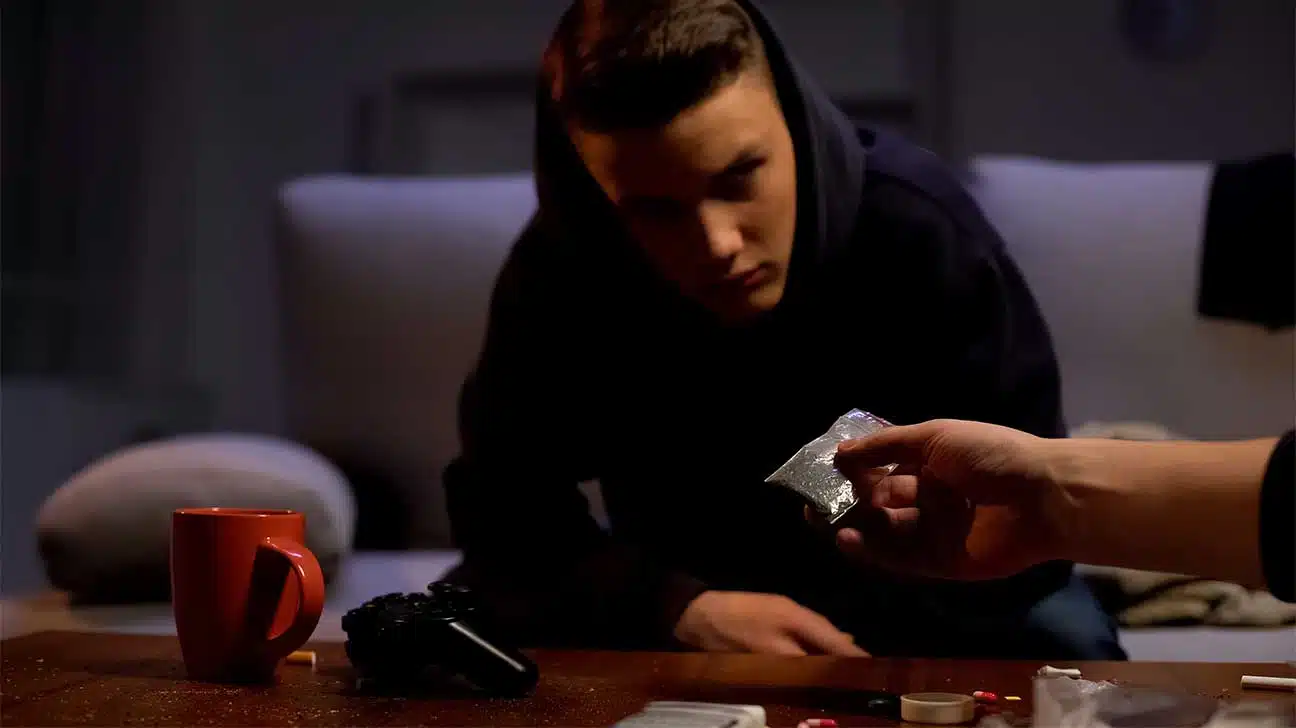
While illicit drug use among teens is lower today than it was at the start of the COVID-19 pandemic, a large number of adolescents still experience addiction.
Today’s young people face many risk factors for substance use, including school stress, peer pressure, and mental health difficulties.
The following warning signs of teen drug use can help you understand if your friend or family member needs help from a substance use disorder treatment program.
1. Physical Signs Of Teenage Drug Use
Like adults, teens may exhibit several physical red flags when experiencing drug and alcohol use.
Substances such as alcohol, prescription drugs, and illicit drugs cause physical changes in the body, which is especially concerning for teens who are still growing and developing.
Some physical signs of drug abuse in teens include:
- bloodshot eyes
- weight gain or weight loss
- excessive energy or fatigue
- changes in sleep patterns
- nosebleeds
- changes in skin tone
- puncture wounds or track marks on the skin
- frequent bouts of physical illness
- trembling
- coordination difficulties
- dizziness
- excessive sweating
The physical signs of drug abuse depend largely on the type of drug the person uses.
For example, a person with an opioid addiction may experience excessive fatigue, while a person with a cocaine addiction may experience extreme insomnia.
The method of drug use will also affect which physical signs a person experiences.
For instance, injecting a drug may cause red marks on the skin, while smoking and vaping may cause coughing and worsening asthma symptoms.
2. Mental Health Signs Of Teenage Drug Use
Because addiction is a mental health disorder, it impacts people’s emotional well-being in several ways.
If your high school student has a sudden, drastic change of mood, they may be experiencing substance abuse or another mental illness.
Some mental and emotional signs of drug use include:
- mood swings
- loss of interest in previously enjoyed activities
- depression
- anxiety
- paranoia
- sudden bouts of anger and irritability
- feeling isolated or withdrawn
- clouded thinking
3. Behavioral Signs Of Teenage Drug Use
People who abuse drugs, including teenagers, may also exhibit specific behavioral signs. Any drastic change in behavior may be a sign of drug addiction or another mental health issue.
Behavioral signs of teen drug use may include:
- poor hygiene
- dropping grades
- sudden secrecy
- keeping drug paraphernalia
- wearing long sleeves even in warm weather
- suddenly changing friend groups
- avoidance and social withdrawal
- taking unnecessary risks
- missing curfew
Moodiness, anger, and social withdrawal are particularly common among teenagers who abuse drugs.
What To Do If You Suspect Teen Drug Use
Spotting teen substance abuse can be difficult because some signs of drug use, including risk-taking behavior and mood swings, are also signs of normal teen development.
Look for signs that appear suddenly, drastically, and seem to contradict your teenager’s personality.
If you believe that your teen is using drugs or alcohol, approach them with calmness instead of anger.
Look for healthcare providers and treatment centers that serve adolescents. Both inpatient and outpatient treatment programs are available for teens.
Find Addiction Treatment Today
Addiction is a difficult disorder for people of all ages, but teens face specific challenges when dealing with substance abuse.
Fortunately, treatment services are available. If you or a loved one are dealing with drug use, contact Addiction Resource today to discover age-appropriate options.
Published on January 17, 2024
Addiction Resource aims to provide only the most current, accurate information in regards to addiction and addiction treatment, which means we only reference the most credible sources available.
These include peer-reviewed journals, government entities and academic institutions, and leaders in addiction healthcare and advocacy. Learn more about how we safeguard our content by viewing our editorial policy.
- Mayo Clinic — Drug Addiction (Substance Use Disorder)
https://www.mayoclinic.org/diseases-conditions/drug-addiction/symptoms-causes/syc-20365112 - National Institute On Drug Abuse (NIDA) — Reported Drug Use Among Adolescents Continued To Hold Below Pre-Pandemic Levels In 2023
https://nida.nih.gov/news-events/news-releases/2023/12/reported-drug-use-among-adolescents-continued-to-hold-below-pre-pandemic-levels-in-2023 - Substance Abuse And Mental Health Services Administration (SAMHSA) — Youth And Young Adults
https://www.samhsa.gov/brss-tacs/recovery-support-tools/youth-young-adults
